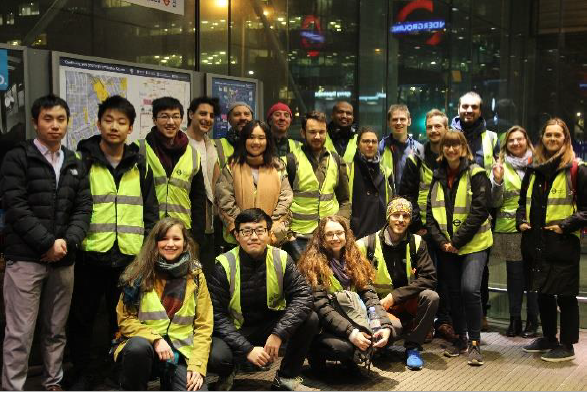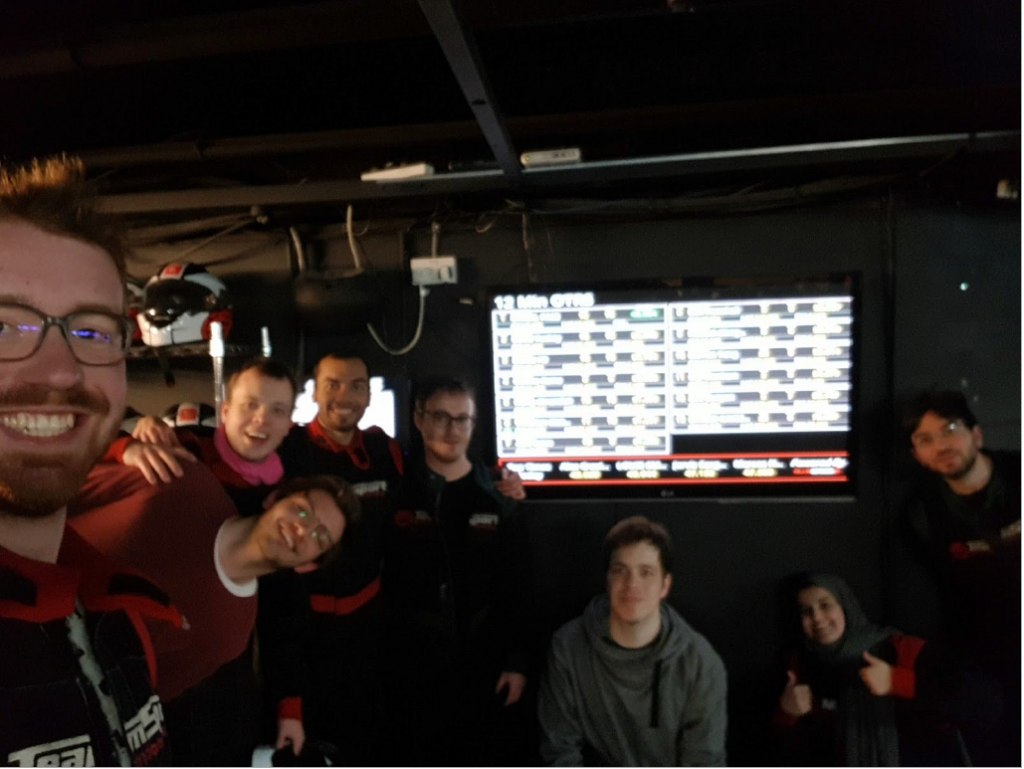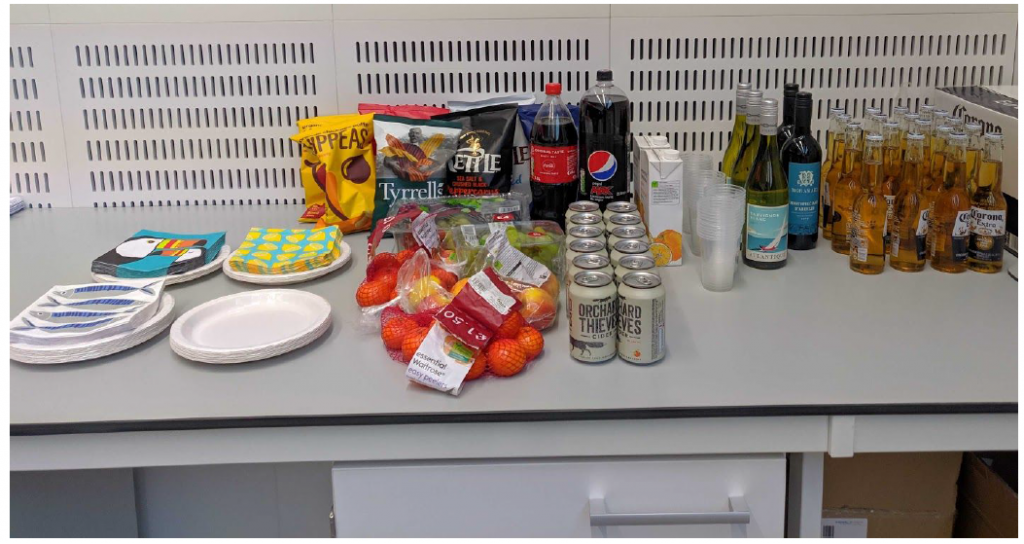1st MRC Centre for Environment and Health’s Sustainability Workshop
by Aina Roca Barceló
On the 29th of January 2020, a group of students and staff members from Imperial College London gathered with one objective: to identify the barriers to a more sustainable workspace. This was part of the 1st MRC Centre for Environment and Health’s Sustainability Workshop, organised by the MRC Researchers Society’s co-chair Aina Roca Barceló (1st year President PhD Scholar), supported by the MRC Centre for Environment and Health, within the Epidemiology and Biostatistics Department (EBS), represented by Drs Fred Piel and Eduardo Seleiro. This was kindly funded by the Graduate School’s Research Community Fund.
For a long time, I (and a lot of people out there) believed that information would lead to change. We now know this is not necessarily correct for climate action. The planet is warming – we know it. Long-term changes in climate, biodiversity, air, water and soil quality are caused by human actions – we know it. We are running out of time to minimise the damage to Earth – we know it. We need to change our behaviours if we want to save humanity and the planet – again, we know it. We are probably the most well informed generation that the Earth has seen [1] and yet, we can’t seem to change fast enough, and not at all in some fronts. Even more alarming is the fact that those advocating for this change often fail to make the necessary changes themselves. Ironic, isn’t it? Yet, this is the reality for many Academic environments. The 1st MRC Centre for Environment and Health’s Sustainability Workshop was designed to change this drift and create the momentum to initiate a sustainability journey in the department. This involved creating an engaging space for students at the School of Public Health (staff members were also welcomed) to identify barriers to sustainable behaviours and generate ideas for action.
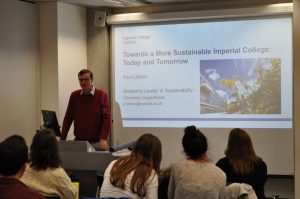
The first stop of our journey; where are we starting from? To do so, we invited Prof. Paul Lickiss, the new Academic Leader in Sustainability for Imperial College London. He guided us through all the past, present and future initiatives happening at Imperial. Several of the initiatives described and available resources were unknown by most of the audience, which highlighted the need for better communication.
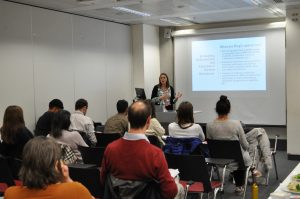
Second stop; how are others moving? Dr Nicola Hogan from the Sustainability Team at King’s College London shared with us a collection of “lessons learned” from their long-running and highly-successful sustainability programme, giving us useful practical tips for achieving rapid changes.
Third stop; why are we not moving? We were determined to identify concrete problems and the barriers to more sustainable behaviours. To do this, we ran a behavioural change co-creation workshop with a user-centred approach. The idea was to promote an environment and state of mind that puts aside prejudice and preconceived ideas and fosters empathy, introspection and creative thinking. One of the activities we used to endorse empathy and explore barriers was role playing. In small groups, participants mapped potential unsustainable actions in a normal day of a fictional character and discussed reasons for such actions, based on that character’s story. To the surprise of most participants, barriers were often neither financial nor relating to knowledge (despite these being the focus of most campaigns and initiatives) but emotional, cultural or social instead. This, and the rest of activities highlighted the complex mixture of barriers that conditions behavioural changes, while also creating a nice engaging drive to push for change.

Final stop; let’s move! Of the barriers and unsustainable practises identified in the activities, each group picked a few and brainstormed ideas on how to break those walls that inhibit people to change. Groups were encouraged to think big, to think outside the box, we wanted to drift away from the standard initiatives and create something unique and suitable for our audience.
What is next, you may be wondering? Well, the workshop helped to create a nice momentum that we aim to keep exploring in the coming months. So far, the lines of work that have arose from the workshop include: the creation of a working group focusing on looking in more detail into the ideas generated in the workshop and suggesting potential changes to make the university more sustainable; organizing awareness campaigns; continue to grow our relationship with the Academic Sustainability Leader Prof. Paul Lickiss, and starting some conversations with other groups across the college with similar interests to join up and bring forces together. So, stay tuned to know more about what we found out. Soon on our website!
Overall, the workshop was well received by both the participants and the keynote speakers, who engaged in part of the co-creation workshop. Based on the feedback, the workshop helped to create a great space to discuss with peers’ and institutional representatives’ views, concerns and ideas to keep pushing our university forward and set the seed for a sustainability network.
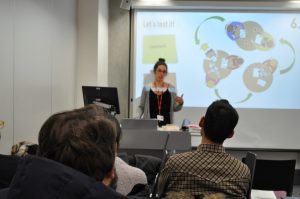
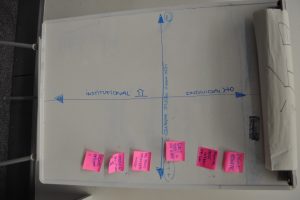
Funding disclaimer: This initiative has been possible thanks to the generous support from the Community Research Seed Fund, Imperial College London.
[1] Obviously, with some communities remaining in the shadow of this information pandemic due to social, economic and technical limitations
